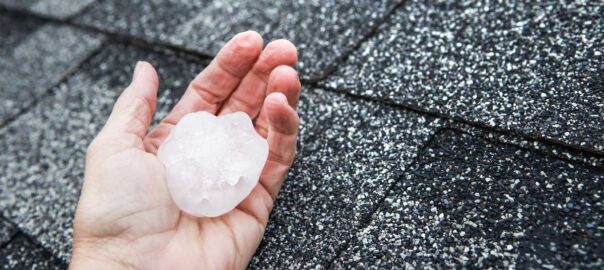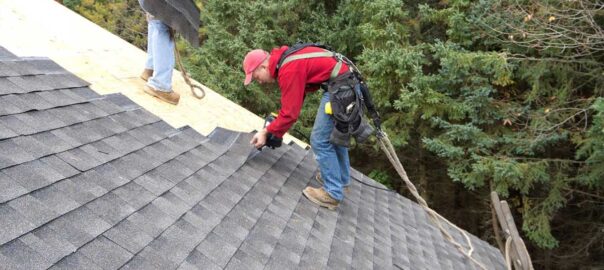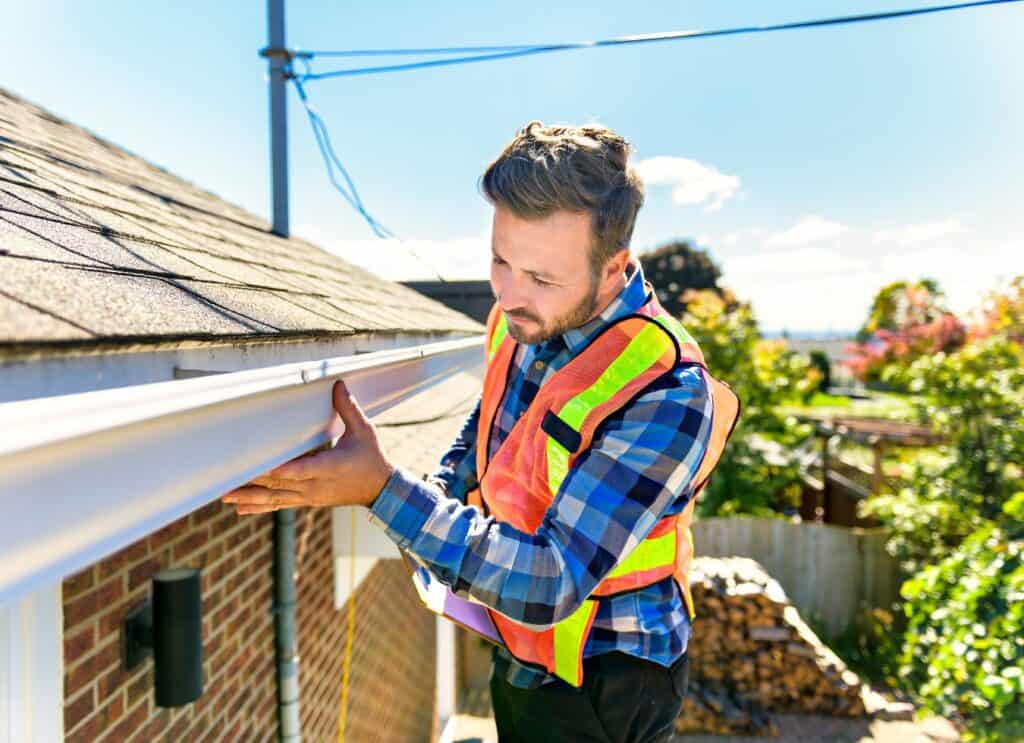If you’ve lived in Colorado for over five minutes, you’ve probably learned a vital life lesson: The weather here has no Netflix and chill zone. One minute, it’s sunny and 75, and the next minute, a snowstorm hits like it’s auditioning for the next Twister movie. It’s enough to make anyone’s head spin—and when it comes to your roof, all those wild weather conditions can take a toll. But don’t panic because we’ve got your back.
Whether you’re dealing with summer hailstorms that could double for a free car wash or the infamous Colorado winds that seem determined to relocate your roof, it’s essential to know how the weather impacts your roof and what you can do to protect it. After all, your roof is one of the hardest-working parts of your home, and giving it a little extra TLC will save you time, money, and potential headaches in the long run.
So, grab a hot cup of coffee (or something more substantial; we won’t judge)!
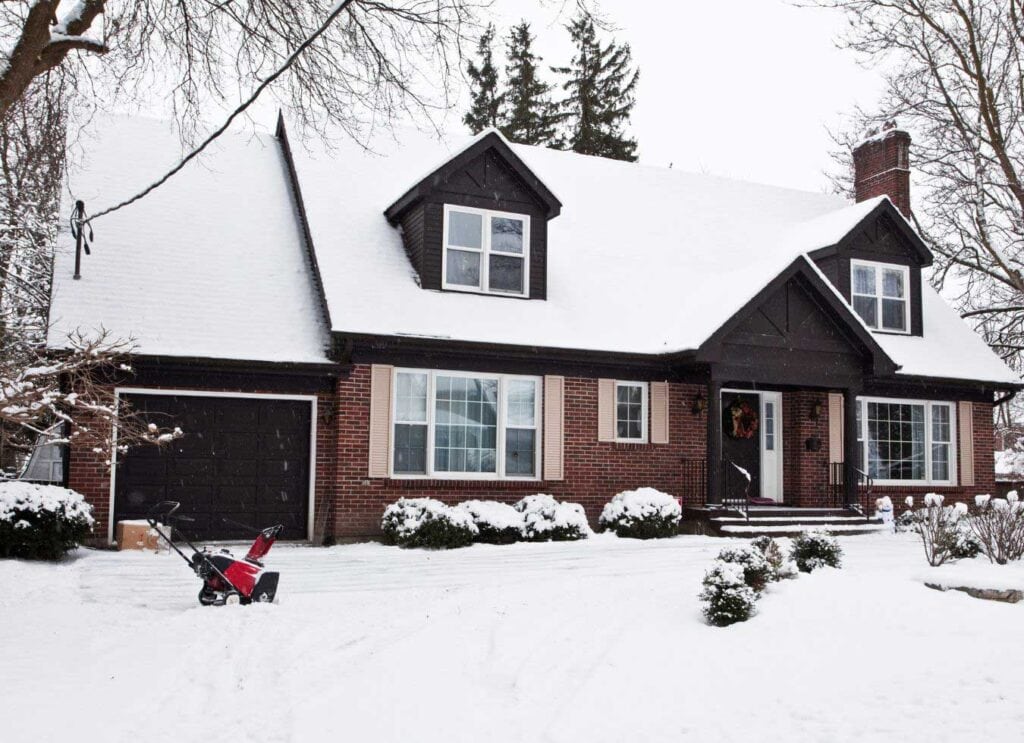
Let’s discuss how the weather affects your roof, which can lead to necessary roof repairs, and what you can do about it.
1. Hail: Mother Nature’s Version of an Unwanted Spa Treatment
Ah, hail. In Colorado, it’s practically a rite of passage. Whether it’s the size of a quarter or a golf ball, hailstorms can seriously damage your roof, especially if your shingles aren’t up to the task. The force of hailstones pounding against your roof can cause:
- Dents, cracks, and holes: Especially on asphalt shingles, these are common in Colorado homes.
- Granule loss: Hailstones can strip the protective granules from shingles, reducing their effectiveness and longevity.
- Cracked tiles or shingles: If the hail is more significant, these can break or fracture, leaving your roof vulnerable to leaks.
What can you do about it?
- Inspect after a storm: Assess any potential roof damage caused by different weather conditions. After a major hailstorm, inspect your roof (or call a local roofer like Denny’s Roofing to do it for you). Check for any visible damage to shingles, tiles, or other roofing materials. If there’s damage, it’s better to catch it early before it becomes a more expensive roof repair problem, such as unwanted water intrusion.
- Consider impact-resistant materials: If you’re replacing your roof or it’s time to upgrade, look into roofing materials designed to withstand hail. There are impact-resistant shingles available that can handle Colorado’s stormy mood swings. If Denny’s Roofing replaces your roof, we will offer you a free upgrade to a Class 4 IR shingle if you don’t already have it on your roof.
- Invest in a roof inspection: Many roofing companies offer free or low-cost inspections after a big storm to help homeowners assess potential roof repairs. Trust us, it’s worth it to ensure your roof hasn’t been quietly plotting against you. Denny’s Roofing will inspect for FREE!
2. Wind: When Your Roof Wants to Test Its Aerodynamics
In Colorado, wind can blow through faster than a plot twist on The Bachelor. And while we love the wind for keeping us cool during summer, it’s not always so kind to our roofs. Those gusts can wreak havoc in several ways:
- Lifted shingles: High winds can lift shingles, which might cause them to buckle, tear, or even blow entirely off.
- Broken flashing: The broken flashing metal around vents, chimneys, and skylights is vulnerable to severe weather’s high winds. These winds can pry it loose or cause it to rust and deteriorate, necessitating repairs.
- Roof structure damage: While your shingles are the first line of defense, strong winds can also stress the structural integrity of your roof, especially if it’s older or has been weakened by other weather events.
What can you do about it?
- Windproof your roof: If you’re in an area with heavy winds, ensure your roof is properly anchored. This might mean using unique roofing nails or adhesive products to secure the shingles. Older shingles will pull up because the adhesive to secure the shingles to each other will start to fail. Newsflash—Certain brands of the newer shingles have higher wind ratings than they used to. The goal is to ensure your roof can withstand gusts without taking off like a kite.
- Trim overhanging branches: Trees and branches that hang over your roof can become wind-driven projectiles during a storm. Keep them trimmed back to prevent accidental damage.
- Install a wind-resistant roof: These help prevent damage from severe weather conditions. If you’re getting a new roof, consider wind-resistant options. Some roofing systems and shingle brands are designed with wind-resistant features, such as interlocking shingles and more robust underlayments.
3. Heavy Snow and Ice: When Your Roof Gets a “Cold Shoulder”
Snow is practically a given in Colorado, and while it’s great for skiing and hot cocoa, it can be a major headache for your roof. Heavy snow can cause all sorts of issues:
- Ice dams: When snow melts and refreezes on your roof; it can create ice dams along the eaves, which can cause roof damage if not addressed. These ice dams prevent proper drainage, causing water to back up under shingles, leading to leaks and mold growth in your attic.
- Roof collapse: While it’s rare, roofs can collapse if the snow buildup is too heavy and the roof isn’t strong enough to bear the weight. This is common in flat roofs or older homes with insufficient structural support.
- Worn-out shingles: The constant freezing and thawing cycle can also wear down shingles over time, leaving them brittle and susceptible to damage, which may require roof replacement.
What can you do about it?
- Winterize your roof: After heavy storms, clear of snow or ice over 12 inches, especially near the eaves. Tools specifically designed for safe roof snow removal are available, so don’t climb up there with a shovel or anything risky. Also, don’t use “ice melt” on the roof. It’s too harsh on the materials and will kill the longevity of your roof.
- Install proper attic insulation and ventilation: Ice dams often occur because warm air from your attic melts the snow on your roof, refreezing as it reaches the colder eaves. Proper insulation and ventilation help prevent this by keeping your attic temperature consistent, reducing the risk of ice dams and leaks.
- Install heat cables if needed: For homes prone to ice dams, installing roof heat cables along the eaves can help keep the snow from melting and refreezing. These cables melt snow as it falls, preventing the buildup of ice.
4. Proper Roof Ventilation and Insulation: The Unsung Heroes of Your Roof’s Health
If you’re not paying attention to your roof’s ventilation and insulation, you’re missing out on some profound benefits. Think of ventilation and insulation as the roof’s version of good skincare—without them, your roof could prematurely age and suffer from issues that could have been prevented, leading to costly roof repairs.
- Ventilation: Proper attic ventilation helps regulate your home’s temperature, preventing heat buildup and moisture accumulation. Without good ventilation, you could have a moldy attic, rotting wood, or premature damage to your shingles.
- Insulation: Insulation helps keep your home warm in the winter and cool in the summer, reducing the strain on your roof and ensuring it lasts longer. Without proper insulation, the heat in your attic can cause ice dams, and the lack of airflow can contribute to the premature aging of your roofing materials, reducing their lifespan.
What can you do about it?
- Add more attic vents: Consider adding more if your attic isn’t well-ventilated. Ridge vents, soffit vents, and gable vents can all help maintain a constant airflow, preventing moisture buildup and excess heat.
- Check your insulation: Ensure it protects against different weather conditions. Make sure your attic is adequately insulated. If the insulation is thin or old, you might want to add more to improve your roof’s overall performance and lifespan. Insulation keeps your roof and home energy-efficient and protects it from the extremes of Colorado weather.
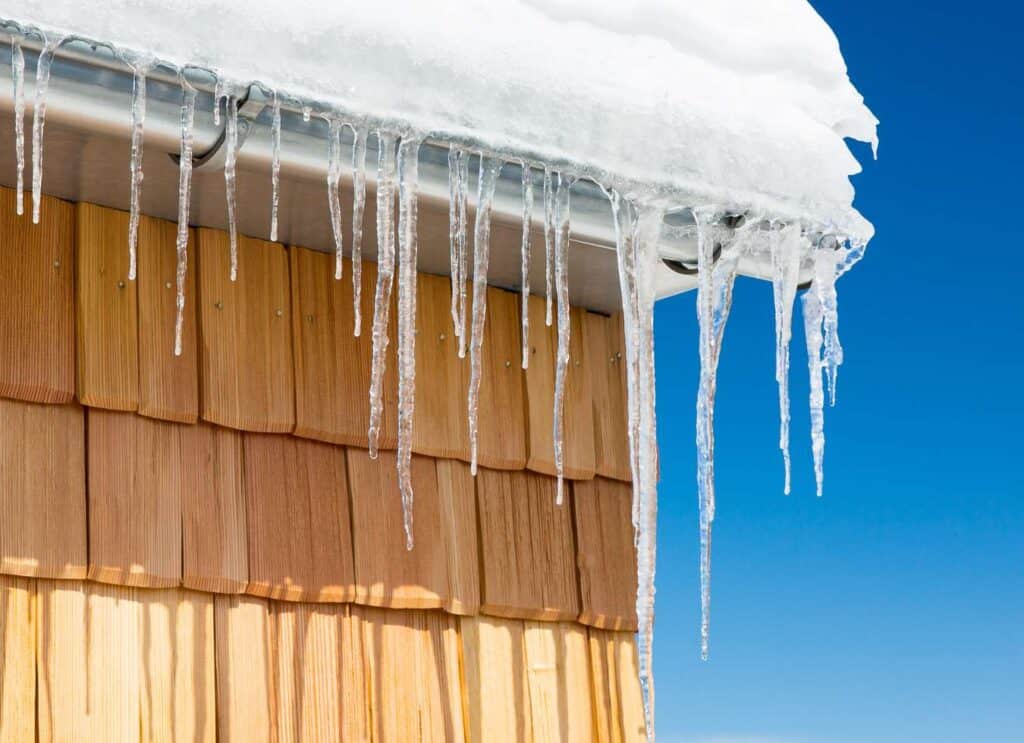
Other Popular Questions We Get About Structural Damage and Roofing Contractors
Q: How do extreme weather conditions impact my roof?
A: Extreme weather conditions can cause significant wear and tear on your roof. Heavy rain can lead to leaks, while extreme heat can cause roofing materials to become brittle. Additionally, UV rays can degrade roofing materials over time, compromising their effectiveness.
Q: What types of severe weather should I be concerned about for my roof?
A: In Colorado, common types of severe weather include heavy rain, hail, snow, and extreme heat. Weather events can impact your roof differently, from causing leaks to damaging roofing materials.
Q: How can I protect my roof from weather damage?
A: Consider investing in weather-resistant roofing materials to protect your roof. Regular roof inspections can also help identify potential issues before they escalate into significant problems. Keeping gutters clear of debris is essential to ensure proper drainage during heavy rain.
Q: What are the signs of roof damage caused by extreme weather?
A: Signs of damage may include missing shingles, leaks inside your home, dark spots on your ceiling, or visible wear and tear on the roofing materials. If you notice any of these signs, it’s crucial to contact professional roofing services to assess the damage.
Q: How often should I have my roof inspected to understand the impact of weather?
A: Inspecting your roof at least once a year or after any severe weather event is recommended. Regular roof inspections can help you understand how different weather conditions impact your roof and allow you to address any issues early.
Q: Can extreme heat affect my roof materials?
A: Yes, extreme heat can cause roofing materials to expand and contract, which may lead to cracks or other forms of damage. Over time, this can compromise the integrity of your roof and reduce its lifespan.
Q: What should I do if I suspect my roof has been damaged by bad weather?
A: If you suspect your roof has been damaged, you must look closer and contact a professional roofing contractor. They can provide a comprehensive assessment and recommend the necessary repairs to ensure your roof is ready for future weather events.
Q: How do I know if my roof is ready for severe weather?
A: Schedule regular maintenance checks and inspections to ensure your roof is ready for severe weather. Address any signs of damage promptly, and consider upgrading to weather-resistant roofing materials.
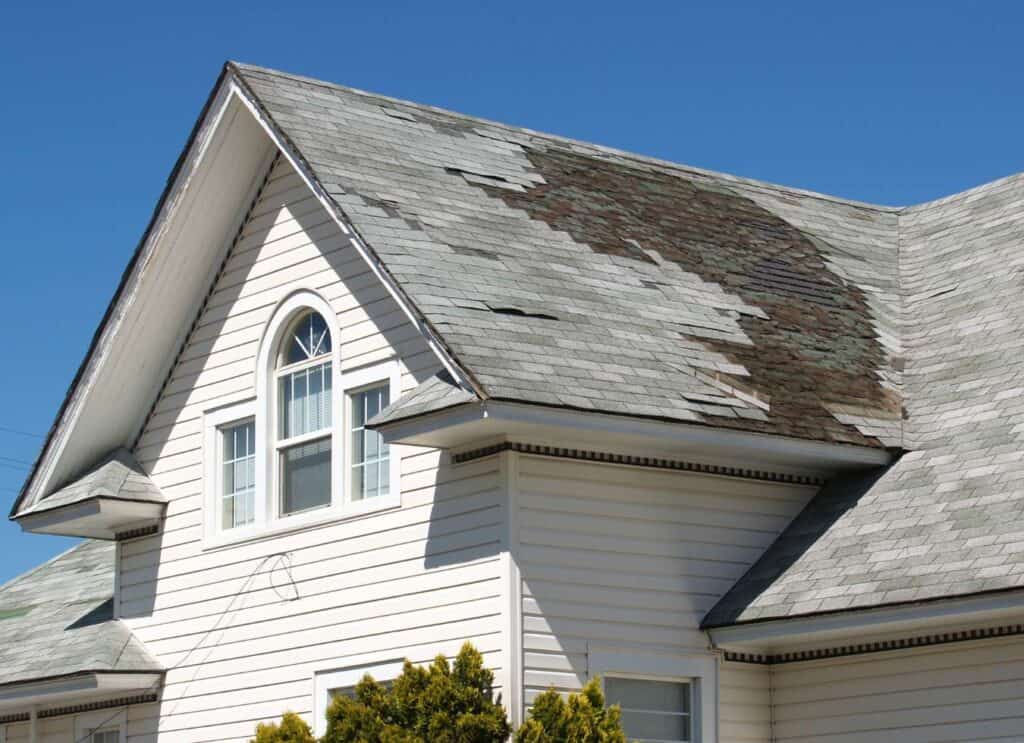
So, What’s the Takeaway?
In Colorado, your roof faces serious challenges, from hailstorms to heavy snow and everything in between. But with the proper preparation and a little TLC, you can ensure your roof stands up to the wild weather like a champ.
Whether winterizing your roof, checking for hail damage, or investing in proper ventilation, there are plenty of ways to protect your home. And if you’re unsure where to start or if your roof needs a little mention, don’t hesitate to call Denny’s Roofing—your local expert in roofing, no matter what Mother Nature throws at you.
Ready to take care of the roof? Call Denny’s Roofing today for an inspection, consultation, or roofing services in Colorado. Let’s keep your roof in tip-top shape, no matter what the weather decides to do next!
Need help with your roof? Contact Denny’s Roofing for expert advice, top-notch roofing materials, and friendly service. We’ve got you covered—literally!

